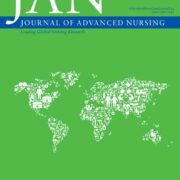How do patients with rheumatoid arthritis perceive their self-care and self-care support? A mixed-method study.
How do patients with rheumatoid arthritis perceive their self-care and self-care support? A mixed-method study.
Abstract
Aim
To explore self-care and needs and preferences towards tailored self-care support of patients with rheumatoid arthritis at the outpatient clinic.
Design
A sequential explanatory mixed method design.
Methods
The Self-Care of Chronic Illness Inventory questionnaire, two focus groups and six semi-structured interviews were conducted between November 2021 and April 2023. Questionnaires of 107 patients were descriptively analysed. Subsequently, 11 patients and 2 healthcare professionals participated in the focus groups and 6 patients in the interviews, which were thematically analysed.
Results
Quantitative and qualitative data corresponded and showed that patients perform various self-care activities at an adequate level and have strategies to exert control and reduce symptoms. One key theme emerged: ‘Not only being the person with rheumatoid arthritis’ (RA) as patients primarily aim to get on with their lives. Nine subthemes covered self-care activities for maintaining health including staying physically active, finding the right medication and dose and adapting their diet. Patients differed in how they self-monitored their symptoms. Recognizing symptoms and finding strategies to manage symptoms included the process of body listening in which patient seek and try different strategies to find what works for them and incorporate routines. Patients experienced positive effects of a warm or cold environment. Patients felt the need for practical and emotional support from others and preferred having credible information.
Conclusion
Patients perform adequate self-care including a diversity of self-care activities to get on with their lives and have strategies to reduce and control the symptoms and impact of RA.
Implications
Tailoring self-care support to patients’ individual needs and preferences is necessary to help patients cope with the erratic nature of the disease and maintain their quality of life. Healthcare providers need to provide practical and emotional support and use credible information to allow patients to make self-care decisions to manage their lives.
Reporting Methods
Quantitative finding are reported according to the STROBE guidelines and qualitative finding are reported according to the COREQ guidelines.
What Does This Paper Add
- Patients perform various self-care activities at an adequate level and have strategies to exert control and reduce symptoms.
- Patients primarily aim to continue their lives and not being seen as the person with rheumatoid arthritis.
- Healthcare professionals need to provide practical and emotional support and use credible information to inform patients’ self-care decision-making.
Patient or Public Contribution
No patient or public contribution.

